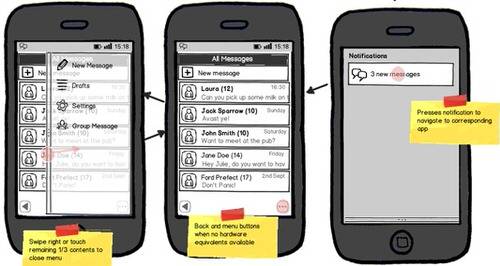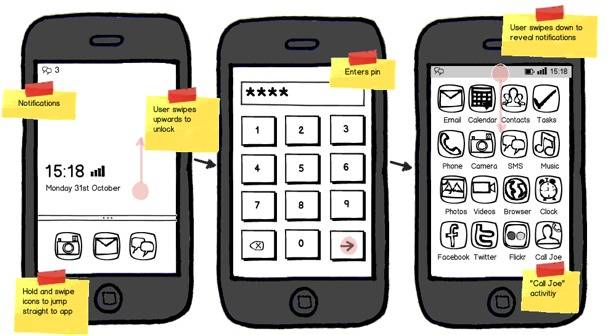When we think of HTML5 as a mobile platform, devices are not what come to mind. The mobile Web, almost by definition, is an amorphous set of technologies, standards, designs, contents and ideas. The mobile Web is more of a Wild West these days then its desktop counterpart. Mozilla is attempting to give the mobile Web shape and definition and today announced a partnership that will bring the first HTML5-based mobile operating system to a device in 2012.

Mozilla announced a partnership at Mobile World Congress in Barcelona today with Telefonica and Qualcomm to create the first mobile Web handset, dubbed open Web devices. The platform will be based on Mozilla’s Boot to Gecko platform and will bring core device APIs to the HTML5-based devices. While many other would-be operating systems have tried to counter the dominance of Apple and Google, Mozilla and the open Web may have the best chance yet.
The goal of Mozilla is to create the first truly open source mobile operating system for devices. While Android is technically open source, Google has preferred partners among service providers and original equipment manufacturers and is consolidating design guidelines. Android is as open source as Google lets it. The Open Web Devices program will be more than just Mozilla releasing the source code of platform. Mozilla is building its mobile operating system with open source tools and all references will be submitted to the W3C for standardization.

There will be no proprietary APIs, no backroom partnerships. Just an open platform that anybody can build upon within reason. The goal is to create a browser-based operating system for smartphones that can compete with high-end capabilities on a feature phone budget. In many ways, the Boot2Gecko mobile operating system will be the smartphone equivalent of Google’s Chrome OS that attempts to bring a browser-based OS to netbooks. While the Chrome OS has not been successful on the market, Mozilla has the ability to capture the hearts and minds of developers looking for easier cross-platform standards to deploy applications.
HTML5 and JavaScript are preferred tools for Web developers. That is no different for mobile Web developers. The problem is that HTML5 and JavaScript have limited access to device capabilities like calling, contacts, camera and messaging. Mozilla will bring those core functionalities to the browser (mobile Firefox) as writable applications.
The partnership with Telefonica is interesting. By teaming with the international mobile operator, Mozilla is showing that it will be aiming its operating system at emerging markets. That fits with language in its press release, stating that it intends to bring smartphone level capabilities to the world in feature phone price ranges. This will bring Open Web Devices in direct competition with low-end Android devices, Samsung feature phones and Bada-driven handsets and Nokia’s Symbian series. Whether or not we will see a high-end device come from Mozilla to the United States remains to be seen.

From a development perspective, apps for the Mozilla mobile OS will be browser-based and built with open standards. It is likely that the Mozilla Apps Marketplace will be featured prominently on the phone. Last week we said that Mozilla has a chance to be the king of the mobile Web and it is setting up all the appropriate tools from and app store, a functional operating system and soon a series of devices to deploy them. Other operating systems such as Tizen (MeeGo) and webOS were unable to find a niche in the current mobile ecosystem but Mozilla has the opportunity to succeed where the others have failed.
Mozilla may also be able to avoid the issues that have plagued Android. The Open Web Devices program can avoid fragmentation issues because the primary driver of the OS is the browser, not the device. Mobile HTML5 and JavaScript applications should be able to run well in any device as long as the browser supports specific aspects of those standards. A more pressing concern though might be that of malware, something that is bred and native to the Web precisely because it is so open.
Developers: are you excited for the Mozilla Boot to Gecko device? Can this be the first real open source smartphone based on Web standards? Or is it destined to become another also-ran in the ecosystem? Let us know in the comments.









